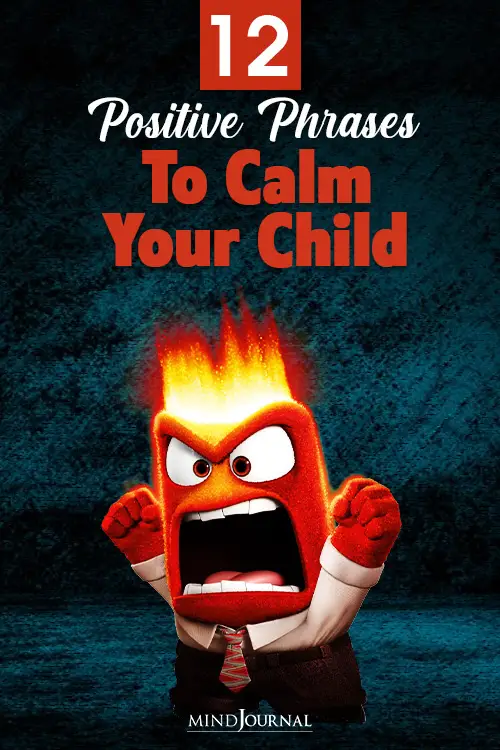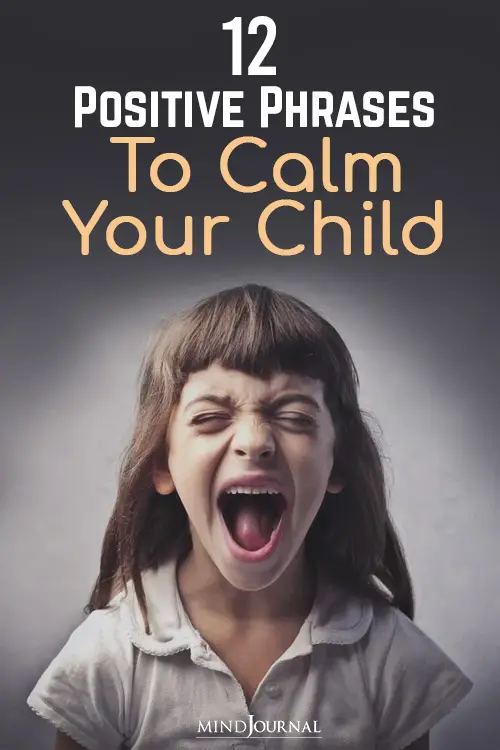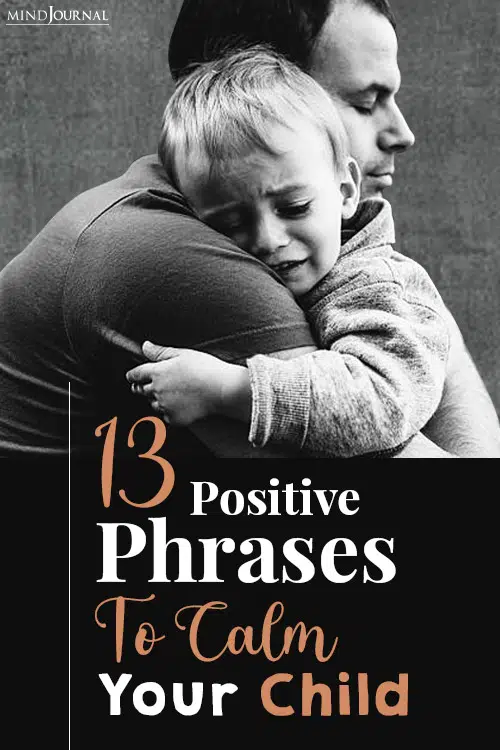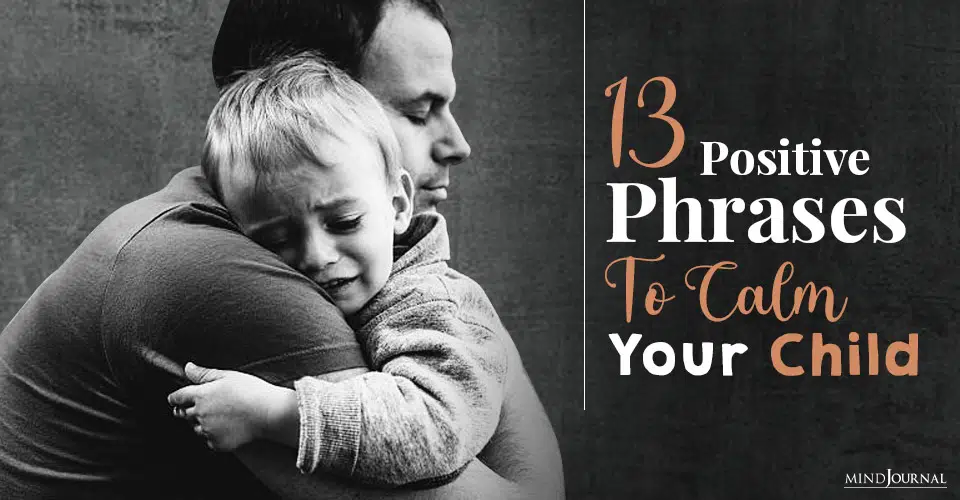Whether your kids are going through anxiety or anger management issues, in both cases calming a child can be a really big deal. There is a feeling of uneasiness towards certain situations that negatively disturbs their calm. As parents we should always remember that meltdowns aren’t abnormal, it’s a thing that everyone goes through. But for kids, it’s difficult to cope with these issues as they are not quite familiar and habituated with these situations.
That is why we parents are always on the lookout for words that will help ease our kid’s emotions. Here in this article, we have listed some phrases to calm your child whenever they are upset.
The first and foremost thing to calm your child is to let them express their worries and work through these anxious situations. Encouraging words can help you to calm your kid and help them understand that they are not alone. While our intentions are certainly to help them calm down but there are certain phrases that just don’t help children calm down but sometimes aggravate their negative thoughts.
Here is the list of these phrases which you should not say to your kid when they are having their moments-
- “Don’t Worry”
- “Calm Down”
- “Stop worrying, It’s nothing”
- “There’s nothing to be scared of”
- “Why are you making such a big fuss”
- “Why are you so upset”
- “Stop being so difficult”
- “Get over it”
As parents, we always try to shield our kids from any circumstances. But it’s necessary to give our children the tools to develop their emotional intelligence, and in this sense, the first thing is to teach them to identify their feelings. Because when children understand their feelings they begin to understand others and other situations well.
Parenting an anxiety-ridden child might make you feel quite helpless at times. Yes, it’s worrisome, but it’s manageable. It’s actually a breather to know that there are some proven phrases to calm your anxious and angry kids.
Here are some of the useful phrases to calm the little ones. You can always consider the following list of calming phrases to say to your child when things get hard to handle.
Related: How To Help A Child With Stressful Experiences
13 Positive Phrases To Calm Your Child
1. “Tell Me About It.”
Let your children talk about their fears, their insecurities, and everything that is going around in their minds. Sometime’s with just listening you can help them open up about their frustrations and also process their own thoughts. As a parent, this is one of the best things you can do to calm your child.
2. “You Don’t Have To Be Perfect.”
Don’t compare your kids to another child, because every kid is different, and each one of them has their own individuality. Try to empathize with their strengths and make them understand that not everything in their life has to be perfect, not even them because no one is. Appreciate them for who they are, and this will make them feel confident and reassured.
3. “Would You Like My Help?”
Offer help, but give them the choice to decide if they want it or not. That is how they will realize that you trust them with their activities. Allow them to ask for help, but let them know you think that they are capable of handling it. Also, show them another way to accomplish their task, by giving them different ideas that will help them look at it from a different perspective.
4. “I Love You, I Am Here.”
Perhaps one of the most comforting and efficient phrases to calm your child is this. It’s important to remind them that you love them, no matter what and you are there no matter what happens. These words offer extreme comfort and safety to your kid.
5. “You Know I Feel Like That Sometimes Too.”
This is one strong empathetic phrase. If you start your conversation like this and tell them that you also get affected by certain things just like they do then that will help your kid feel seen, heard, and understood. They will be more open, receptive, and encouraged to listen to you.
Related: Lonely Children Are Hungry for Connections and How Parents Can Help Them Reconnect
6. “I Wonder If….”
Children cannot always process their feelings let alone do something about it on their own. Sometimes they straight away refuse help too. In these situations, you can give them choices of activities to help them calm their mind. “I wonder if you like to go to the park”, “I wonder if an ice cream would help”, “I wonder if you could use a nap”, etc; these are some of the lines you can use when they are upset.
7. “We Will Find A Solution.”
You can use this phrase for both of you, and teach your kid to remember this phrase in any tense situation. Make your kid believe that nothing lasts forever, including their troubles and the uncomfortable feelings they are feeling, and that nothing is permanent. But if it doesn’t, there will always be a solution, and all that you and your kid have to do is find that one.
8. “I Know This Is Hard.”
This is one of the phrases to calm your kid by letting them know that you acknowledge that they are struggling, and it also gives them an instant feeling of emotional relief. Let them know it’s okay to feel angry or anxious but they need to work on it to sort it out and no matter what happens, you are always there on their side to turn the turtles.
9. “Let Me Tell You Why You Shouldn’t Do That.”
Forbidding something is controlling and that can make your kid rebellious. It’s important to explain to your kids why they need to stop. Believe me, they can understand the logic, and on top of that, setting a limit is necessary as it can help them to get a better handle in any situation by understanding.
Related: 13 Alternative Ways To Discipline Your Child, Than With a Simple NO
10. “Remember The Last Time….”
Your child may need reminders of their accomplishments. Remind them how they behaved correctly in past situations, how they listened to you and stopped themselves, tell a past story associated with it, and ask them why they think they cannot correct themselves today, and why is it hard now when it wasn’t hard then. Remind them what works for them the best, and at the same time try to understand where they are coming from.
11. “I Am Going To…”
When things get really tough, walk away from conflict. Tell your kid that can talk to you once they are calm. This will also give them some space for cogitation and make them learn how to self-calm. Let them you are waiting for them at another part of the house.
12. “How About We Do This, Would You Like To Help Me?”
Divert your kid’s attention by simply starting a task. Shift their focus on some handiwork, this will help them form good habits too. You can fix or replace some things, do chores with them, or do gardening with your kids, whatever the activity they choose, it will also add up with your quality time spent with them.
13. ” I Am Proud Of You.”
This is the most recommended of all phrases to calm your child. Let them know that you appreciate the fact that they are trying and they are getting better. Remind them that you’ll still be proud of them if they don’t achieve anything but put in their effort. Make them understand that trying is the key, that will keep them encouraged for positive behaviors.
Related: 8 Inspirational TED Talks For Parents
Parenting is not actually a joy ride, but an adventurous one, and with a ton of ups and downs. But at the end of the day, your kids are worth every struggle you have been put through. Kids have their moments, but so do we, and that is why the practice is to prevent yourself from losing control; so start with a small habit, small gesture, and small phrases. Remember it takes time and practice, and no parent is perfect from the beginning. Just take one step at a time, and one calming phrase at a time.











Leave a Reply
You must be logged in to post a comment.